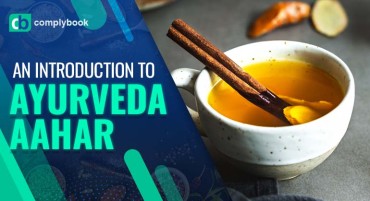
.png)
Copyright Infringement
Copyright is a form of Legal right which is given to the creator, who has the ownership in musical, literary or any other artistic work. This may be paintings, sound recordings, dramas, or any other artistic work.
Copyright in India is governed by the Copyright Act, 1957, which has been altered six times, with the last amendment in 2012. It is a comprehensive statute providing for copyright, moral rights (known as author’s special rights) and neighbouring rights (rights of broadcasting organisations, performers and droit de suite). The Act provides for exhaustive economic rights (copyright) in many works that are transferable. Moral rights exist in perpetuity and are vested in the authors and their legal representatives, being non-transferable and enforceable by the authors and legal representatives even when the copyright in the work has been assigned.
The Copyright Rules, 2013 came into force from 14 March 2013 and provide for the procedure to be adopted for relinquishment of compulsory licences, copyright, statutory licences, registration of copyright societies, voluntary licences, membership and administration of affairs of copyright societies and performers’ societies.
Section 14 of the Copyright Act, 1957 explains the meaning of copyright as an absolute right to do or permit the doing of any of the following acts in respect of a work or any substantial part thereof, namely:
- Reproduce the work in any form including storing the work in any form
- Perform the work in Public
- Translate the work
- Make any cinematographic film in respect of the work
- Issuance of copies of the work to the public
- Make an adaptation of the work
Eligibility for Copyright:
- Literary works
- Dramatic works
- Choreographic works
- Musical composition
- Graphics and Sculptural Activities
Importance of Copyright:
- Copyright helps the author to exercise authority over his work
- Copyright lawfully protects the creator’s work
- Copyright provides title to the creator of the work.
Copyright Registration:
It is not compulsory to register the work to claim copyright and it begins the moment the work is created. However, it is guided to register the work for better protection, it will serve as proof in a matter of dispute.
The Copyright Act, 1957 under section 13, states that the copyright can be given only for the original work. Copyright is usually provided for 60 years.
Copyright Infringement:
Copyright infringement means the unauthorized use of anyone’s copyrighted work. Hence, it is the use of anyone’s copyrighted work without permission thereby infringing certain rights of the copyright holder, such as the right to distribute, reproduce, display or perform the protected work.
The Copyright Act under Section 51 specifies when a copyright is infringed. As per Section 51 of the Act, Copyright is considered to be infringed if:
- Any person imports infringing copies of a work
- Any person without obtaining the permission of the copyright holder does any act which only the copyright holder is authorised to do.
- Any person without obtaining the authority from the copyright holder reproduces his work in any form.
- Any person allows the place to be used for communication, distribution, selling, or exhibition of an infringing work unless he was not having knowledge or has no reason to believe that such authorisation will result in the violation of copyright.
Elements of Copyright Infringement:
- The work was the author's original creation.
- The defendant actually copied the work of the author. It is important to note that not all copying is actionable under law. The substantial similarity between the works of the defendant and author has to be established to prove that the defendant has infringed the author’s copyright.
Types of Copyright Infringement:
Copyright infringement can be divided into two categories which are as follow :
- Primary Infringement: This type of infringement deals with the actual act of copying. However, sometimes a person may only copy a segment of the work, for instance, some lines of an article. In such a case, it is required for the copyright holder to establish two things:
- Substantial Taking: A copyright is infringed only when an unauthorized person copies a substantial part of the work. For instance, copying a catchy phrase of a song writer. While deciding the case, the court also tries to conceive how a normal person will perceive the work. If a normal person will recognize that the work is copied from a different source then it will be deemed infringement.
- Casual Connection: The copyright holder must prove the similarity between his work and the infringer. However, this may be because of several other reasons like both of them have used the same source for the research. In such a case, the copyright holder can not claim for infringement.
- Secondary Infringement: Secondary Infringement deals with the infringement of copyright work without copying it in actual. This can happen in the following ways as under :
- Selling Infringing Copies: If anyone sells the copies that infringe the right of the copyright holder then it will result in copyright infringement.
- Importing Infringing Copies: Importing the infringed work of the copyright holder in India also results in infringement of Copyright. However, if anyone has imported the infringed work for the personal or domestic usage then it will not result in Copyright Infringement.
Remedies for Infringement of Copyright:
The Copyright Act, 1957 specifies two types of remedies which are as under :
1. Criminal Remedies:
- Criminal proceedings can be taken against the infringer by the copyright holder. The criminal remedy is not an alternative to the civil remedy but is complementary to it. Therefore, the copyright holder can bring both criminal as well as civil proceedings simultaneously.
- The Copyright Act, under section 63 specifies that copyright infringement is a criminal offence.
2. Civil Remedies:
- The copyright act under section 55(1) specifies that the copyright holder is entitled to remedy by way of injunction. The injunction is the most effective remedy in case of copyright infringement. Injunction means a judicial process by which one who is threatening the legal rights of someone is restrained to continue his acts or is ordered to restore the matter to the position in which they stood before the action.
- The copyright act under section 55(1), further specifies that the copyright holder is entitled to damages for copyright infringement. The reason for providing the damages to the copyright holder is to reinstate him to the earlier position.



